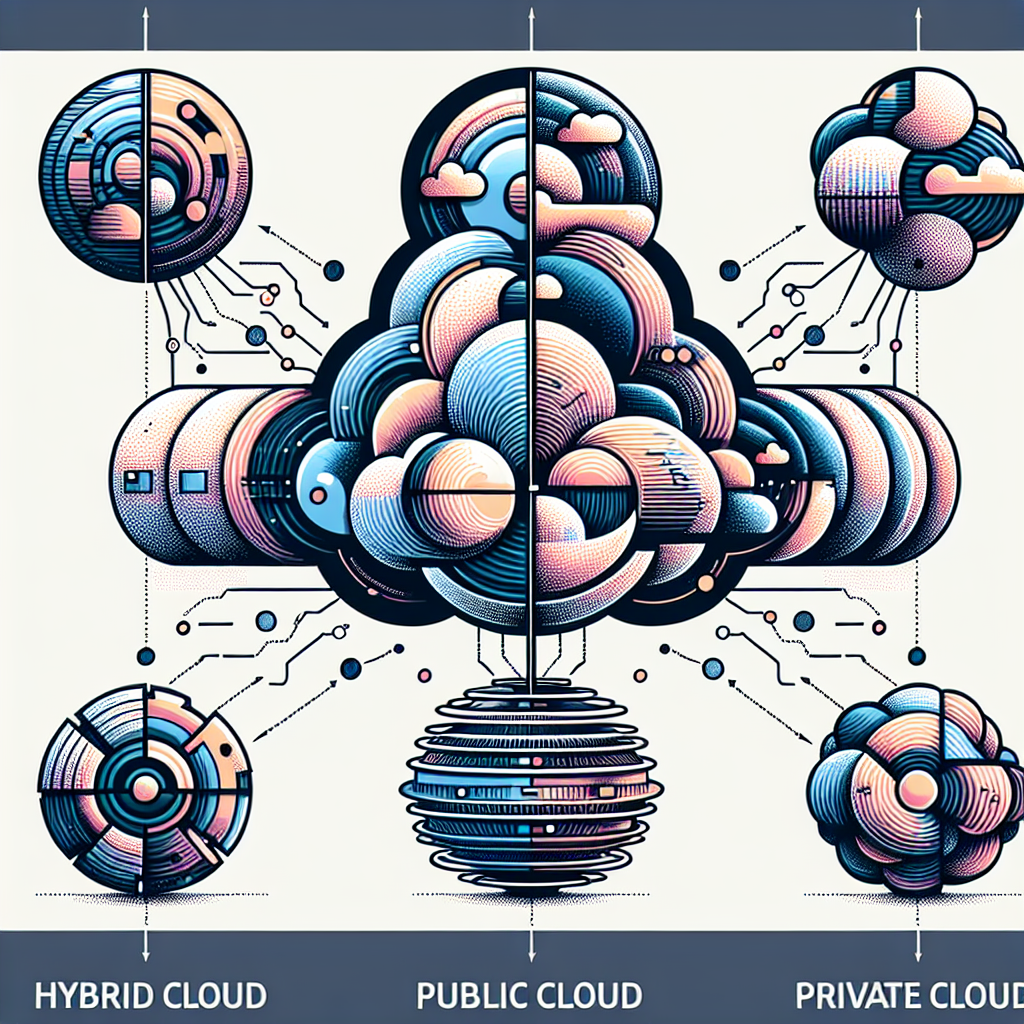Cloud computing has become a popular choice for businesses looking to streamline their operations and improve efficiency. However, with so many options available, it can be overwhelming to decide which type of cloud environment is best for your organization. In this article, we will explore the differences between hybrid cloud, public cloud, and private cloud to help you make an informed decision.
Hybrid Cloud:
Hybrid cloud is a combination of both public and private cloud environments. This allows organizations to take advantage of the benefits of both types of cloud computing. For example, sensitive data can be stored in a private cloud, while less critical data can be stored in a public cloud. This flexibility allows companies to tailor their cloud environment to meet their specific needs.
One of the key advantages of hybrid cloud is scalability. Organizations can easily scale their cloud resources up or down depending on their needs, without having to invest in additional hardware. This can help reduce costs and improve efficiency.
Another benefit of hybrid cloud is increased security. By storing sensitive data in a private cloud, organizations can ensure that their data is protected from unauthorized access. At the same time, they can take advantage of the security measures provided by public cloud providers.
Public Cloud:
Public cloud is a cloud environment that is owned and operated by a third-party cloud service provider. This type of cloud computing is ideal for organizations that need a cost-effective solution for storing and accessing data. Public cloud providers offer a range of services, including storage, computing power, and networking capabilities.
One of the main advantages of public cloud is scalability. Organizations can easily scale their resources up or down depending on their needs, without having to invest in additional hardware. This can help reduce costs and improve efficiency.
Another benefit of public cloud is accessibility. Organizations can access their data and applications from any location with an internet connection, making it easy to collaborate with remote teams and work on-the-go.
Private Cloud:
Private cloud is a cloud environment that is dedicated to a single organization. This type of cloud computing is ideal for organizations that need to store sensitive data or comply with strict security requirements. Private cloud environments can be hosted on-premises or by a third-party cloud provider.
One of the key advantages of private cloud is enhanced security. Organizations have full control over their cloud environment, allowing them to implement strict security measures to protect their data. This can help reduce the risk of data breaches and unauthorized access.
Another benefit of private cloud is customization. Organizations can tailor their cloud environment to meet their specific needs, such as compliance requirements or performance standards. This can help improve efficiency and productivity.
In conclusion, hybrid cloud, public cloud, and private cloud each have their own unique advantages and disadvantages. It is important for organizations to carefully consider their needs and requirements when choosing a cloud environment. By understanding the differences between these three types of cloud computing, businesses can make an informed decision that will help them achieve their goals and improve their operations.


Leave a Reply